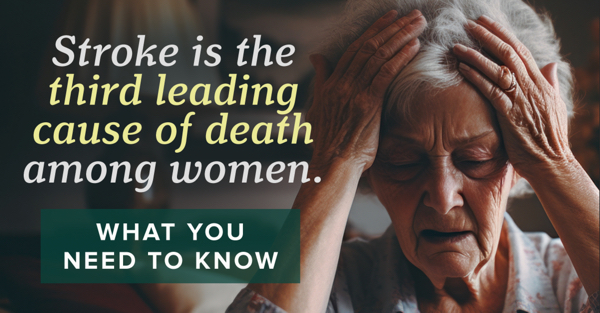Did you know stroke is the third leading cause of death among women and kills more women than men?
Surprised? If so, you’re not alone. Many women are not aware of their risk or the fact that symptoms can present differently in women.
“In recognition of American Stroke Month, we’re joining with other organizations across the country to raise awareness about symptoms and prevention,” said Austin Blilie, Chief Operating Officer at Trail Ridge Home Care’s parent organization, ABHM.
“Knowing the facts about stroke can help women take steps to protect their health and, if needed, seek treatment.”
According to the American Stroke Association, some common stroke symptoms are:
- Numbness or weakness in the face, arm or leg
- Trouble speaking or understanding speech
- Vision problems
- Trouble walking or lack of coordination/balance
- Severe headache without a known cause
Additional symptoms that women might experience include:
- Disorientation, confusion or memory problems
- Fatigue
- Nausea or vomiting
The good news – you can significantly reduce the risk of stroke by making healthy choices and controlling any chronic health conditions you might have, such as high blood pressure, high cholesterol or heart disease. Experts with the Centers for Disease Control and Prevention recommend that you:
Maintain a healthy diet. An unhealthy diet can increase your chances of having a stroke, because it may lead to an increase in your blood pressure and cholesterol levels. A low-fat, high-fiber diet is best – with plenty of fruits, vegetables and whole grains.
Exercise regularly. Regular exercise can help lower your cholesterol and keep your blood pressure at healthy levels. For most people, at least 150 minutes of moderate-intensity aerobic activity, such as fast-walking or cycling is recommended.
Stop smoking. Smoking significantly increases your risk of having a stroke, because it narrows your arteries and makes your blood more likely to clot. So, if you don’t smoke, don’t start. If you do smoke, stop.
Limit alcohol. Heavy drinking can lead to weight gain, high blood pressure and trigger an irregular heartbeat, all of which can increase your risk of having a stroke. Experts believe heavy drinking multiplies the risk of stroke by more than three times.
Manage underlying conditions. If you have been diagnosed with a condition known to increase the risk of stroke, work with your doctor to make sure the condition is controlled.
For more information about stroke warning signs, prevention, recovery and resources, check out the American Stroke Association at stroke.org.
